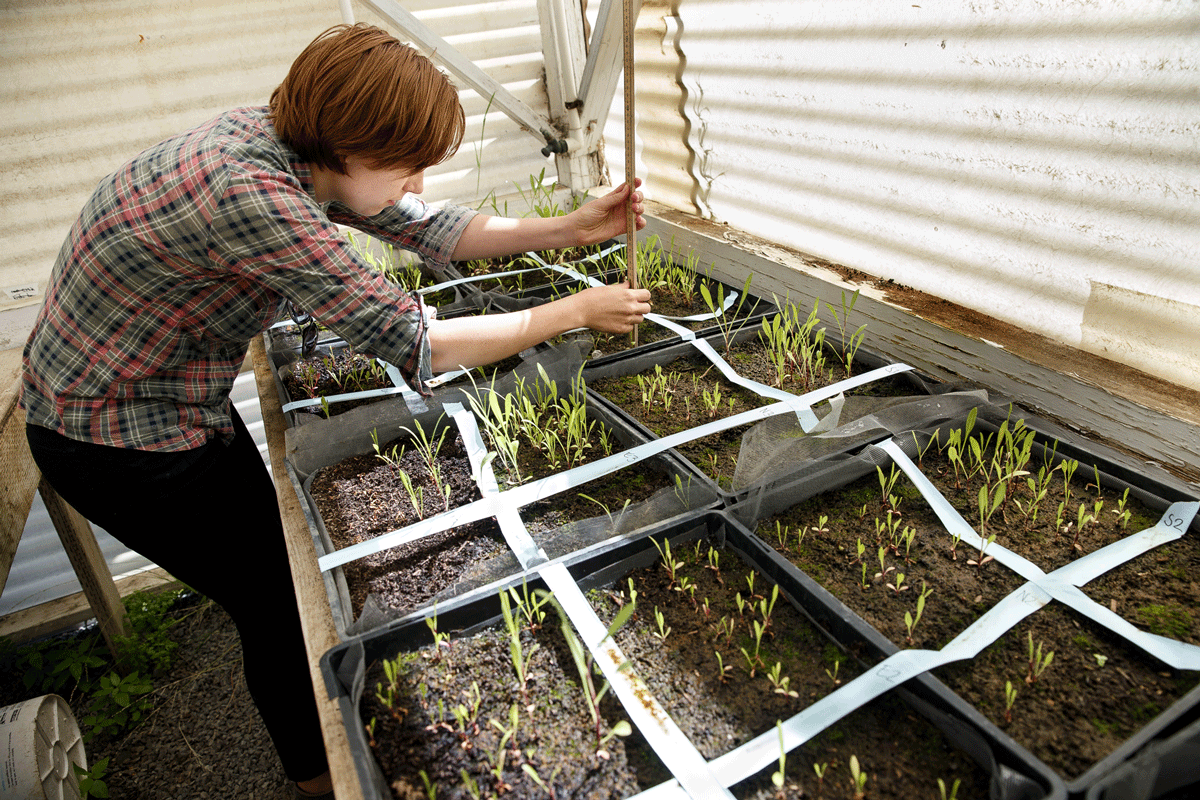As of Spring 2022, the Botany course of study has been consolidated and is now represented within the Ecology, Evolution, and Conservation Biology (EECB) bachelor of science degree. For students who may be following these paths, advisors are always available to support your understanding and progress in these degrees.
The curriculum in Botany is designed to expose students to wonderfully diverse kingdoms of plants and fungi. Plants sustain the inhabitants of our planet with food and oxygen. The B.S. in Botany is suited for students preparing for a variety of careers, such as research, environmental consulting and conservation.
Plants are autotrophs (primary producers) that are the source of food and oxygen for heterotrophs (consumers such as humans). Plants are also a central component of our ecosystem and they play a pivotal role in the carbon cycle (and global warming).
Career options for Botany majors: A Botany major who enjoys the outdoors might find a career as an ecologist, taxonomist, conservationist, forester or plant explorer. Your work could allow you to live and work in the great outdoors. Because plants are so diverse, botanists share a common interest in and curiosity about the hundreds of thousands of species of plants on earth.
If you want to work in a tropical forest or on a farm, studying Botany can help prepare you. If you want to search for new medicines or advance the frontiers in the study of cellular and molecular plant processes, working with a botanist can lead you in the right direction. If you want to understand ecological and global processes, botanical knowledge is critical. If you want to become a doctor or a dentist or work in the health professions, a Botany degree can be used as a means to your goal. Or, if you are interested in horticulture or landscape design, a degree in Botany could be for you.
